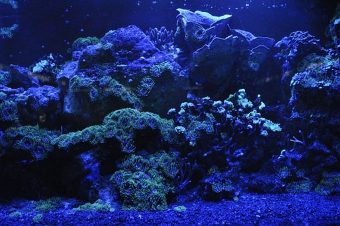
A report from United States Secretary of the Interior Ryan Zinke recommends shrinking three ocean monuments and opening them up to commercial fishing. The monuments, two in the Pacific Ocean and one in the Atlantic Ocean, are undersea treasures according to Jane Lubchenco, administrator of the National Oceanic and Atmospheric Administration from 2009-2013. Lubchenco told The Guardian, “These ‘blue parks’ harbor unique species, a wealth of biodiversity, and special habitats.”
President Donald Trump may not just take aim at land-based national monuments, but at the following three marine monuments. The over 490,500-square-mile Pacific Remote Islands monument, created by George W. Bush and expanded by Barack Obama, includes largely untouched coral reefs and is “the last refugia for fish and wildlife species rapidly vanishing from the remainder of the planet,” per the Fish & Wildlife Service. The 10,156 square mile Rose Atoll monument “protects diverse marine ecosystems and the millions of wildlife dependent upon the Central Pacific.” And the 4,913 square mile Northeast Canyons and Seamounts monument is the United States’ only protected area in the Atlantic Ocean, featuring underwater mountains and canyons, deep-sea coral, and endangered whales and sea turtles.
In his report Zinke said, “While early monument designations focused more on geological formations, archaeological ruins, and areas of historical interest, a more recent and broad interpretation of what constitutes an ‘object of historic or scientific interest’ has been extended to include landscape areas, biodiversity, and viewsheds.”
Fishing organizations aren’t always pleased about the monuments. In March, a New England coalition sued the federal government over fears fishers would be out of a job due to the Northeast Canyons and Seamounts monument. The challenge is based on the idea Obama exceeded his authority in designating the monument.
Conservation groups worry activities like seabed mining or oil drilling could be next if monuments are opened for fishing. Pew Charitable Trusts Director of U.S. Oceans, Northeast Peter Baker told The Guardian, “It shouldn’t be too much to ask to protect two percent of the U.S.’s exclusive economic zone off the Atlantic coast for future generations.”
Lubchenco said, “Creation of highly protected blue parks like these monuments is beginning to re-establish the all-important balance of places to be used and places to be treasured. We need both.”
Source: inhabitat.com





